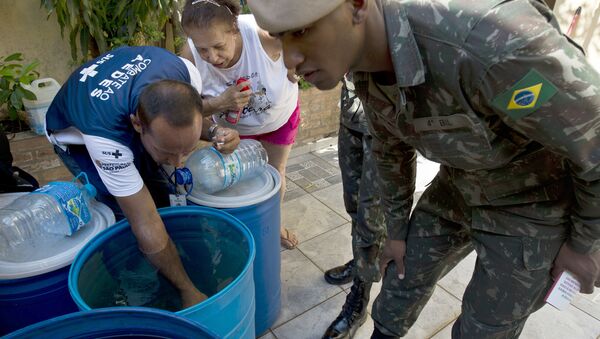MOSCOW (Sputnik) — Potentially infectious Zika virus was detected in saliva and urine, the Brazilian Oswaldo Cruz Foundation (Fiocruz), affiliated with the Brazilian Health Ministry, said in a statement Friday.
"It was known that the virus could be present in both urine and saliva. This is the first time we've demonstrated that the virus is active [there], with the potential to cause infection, which opens new paradigms for understanding the transmission routes of the Zika virus," the Fiocruz leading researcher, Myrna Bonaldo, was quoted as saying in the statement.
The Zika virus affects primarily monkeys and humans and is transmitted by daytime-active mosquitoes. Zika does not cause serious complications in adults, but it is suspected of leading to severe brain defects in newborns.
The current Zika outbreak started in Brazil in the spring of 2015. It has since spread across Latin America, with cases having been reported in several European countries and the United States.
Earlier this week, the World Health Organization (WHO) declared the Zika virus outbreak a public health emergency.




